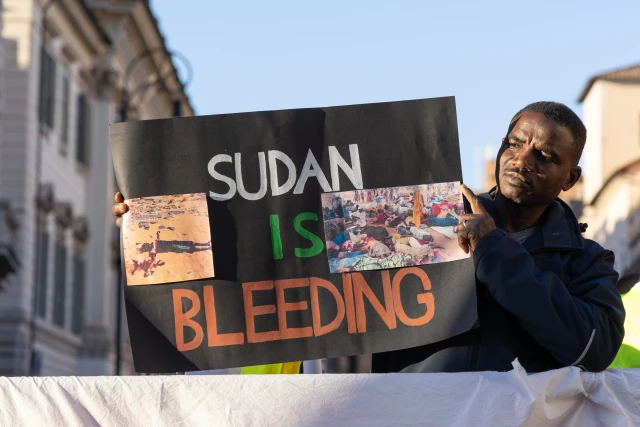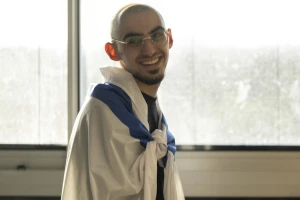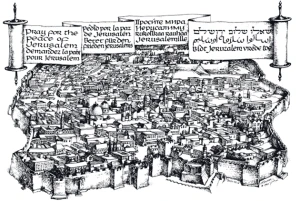Is Israel involved in the genocidal fighting in Sudan?
Anti-Israel activists have pivoted to implicating Israel in the Sudanese war

With the Gaza War drawing to a close, one might worry that anti-Israel activists have been deprived of their main arena to accuse Israel of genocide – but not to worry, as several outlets have already embarked on a new campaign to implicate Israel in the genocidal fighting in Sudan.
The Sudanese Rapid Support Forces (RSF) militia entered the town of al-Fasher amid a horrific massacre some three weeks ago, turning the world’s attention to the war that has uprooted some 12 million people and saw as many as 150,000 people killed so far.
Instead of focusing on the suffering of the Sudanese people, outlets like the Qatari The New Arab and the Hamas-sympathizing Middle East Monitor have produced headlines like “Rogue regimes UAE and Israel complicit in the genocide,” and “Blood and business: The Israel-UAE nexus fuelling Sudan's war.”
The headlines immediately betray the tactic employed by the Qatari outlets: To smear Israel by association with the UAE, Qatar’s most bitter geopolitical rival – which also shows that there is no direct Israeli connection to talk about.
Sudan and peace with Israel
Sudan is the only country that signed the Abraham Accords with Israel but didn’t ratify the treaty, as the civilian government that signed the deal was almost immediately removed in a military coup.
The push for the Abraham Accords had come at a pivotal time for Sudan, which was then in a transitional period after a popular uprising, spearheaded by the military, overthrew long-time dictator Omar al-Bashir in 2019.
A joint military and civilian government took over and attempted to steer the country away from its Islamist past and warm ties with Iran, toward a rapprochement with the U.S. and the West more generally.
It was in this atmosphere that Sudan signed a declaration of intent to join the Abraham Accords and establish diplomatic relations with Israel.
This was a potent symbolic move signaling a serious intent for change, as the Sudanese capital Khartoum had once been the site of the Arab League’s infamous 1967 declaration of the “three no’s”: No peace, no negotiation and no recognition of Israel.
However, the implementation of the deal dragged on until October 2021, when General Abdel-Fattah al-Burhan and the military took power, causing the U.S. to cut aid that was promised as part of the general warming of ties with the West.
In early 2023, it once again looked as if Sudan was just about to return to a measure of stability and fully join the Abraham Accords.
Israel’s Foreign Minister at the time, Eli Cohen, made a historic visit to the country, and media reports said that Sudan and Israel had already finalized the text of a peace agreement and only waited for the transfer of power to a civilian government that was expected within a year to make it official.
Saudi Arabia, UAE, Iran & the Sudanese proxy war
But civil war returned to Sudan only months later, as Burhan’s former deputy, Mohammed Hamdan Dagalo (Hemedti), led his paramilitary Rapid Support Forces (RSF) in a coup attempt.

The RSF had established deep ties with the UAE, which hired RSF mercenaries to fight against the Houthi terrorists in the Yemeni Civil War.
Israel tried to mediate at first, as Israeli media reported that Cohen and the Foreign Ministry were in touch with Dagalo, while the Mossad was said to have contacted Burhan with an offer to host talks.
All attempts to mediate failed, and the civil war has continued and grown worse ever since. Despite being involved in mediation attempts at first, Israel soon shifted its focus to the Gaza War.
Meanwhile, the fighting between Burhan and Dagalo’s forces has become a highly complex proxy war. Unusually, it pits Egypt and Saudi Arabia (supporting Burhan) against the United Arab Emirates (supporting Dagalo).
The three countries usually cooperated to fight Islamist forces backed by Qatar and Turkey in the other regional wars of the past decades, like in Syria and Libya.
Making matters worse and even more complicated, there are credible reports that both sides have bought weapons from Iran, while Burhan’s side has the support of Sudanese Islamist militias affiliated with the Muslim Brotherhood.
Both sides have also been credibly accused of committing horrific massacres of civilians, who are mostly Black and either Christian or Animist, while the forces of Burhan and Dagalo both belong to the ethnically Arab and Muslim part of the population.
All of this leaves Israel with numerous problems and no good choices.
Israel’s lack of options
At first, Israel officially seemed to have come down on cautious, tacit support for Burhan and his Sudanese Armed Forces (SAF), despite the UAE being its closest Arab ally.
In April, an envoy of Burhan reportedly traveled to Israel to ask for assistance in improving relations with the Trump administration, as well as with the United Arab Emirates, after the SAF retook the capital Khartoum.
The envoy argued that the ties with Iran were a result of military pressure and that Burhan had no choice but to buy weapons from them due to his international isolation.
However, nothing has come of this, and now, the RSF has captured the strategic town of al-Fasher, leaving the RSF in control of the western part of Sudan with no end to the war in sight.
In the last months, Burhan appears to have pulled away from the West and Israel again.
He vocally supported the Palestinian wholesale rejection of Trump’s “Gaza Riviera” plan, and this week, rejected a U.S.-backed peace plan and lashed out at Massad Boulos, Trump’s senior adviser for Africa, and at the UAE.
Accordingly, Israel’s Arabic-language foreign ministry account on 𝕏 published a post after the al-Fasher massacre by the UAE-affiliated RSF in which it stressed the terror connections of Burhan’s troops.
“The terrorism of those who call themselves ‘the Muslim Brotherhood’ is the same savage terrorism everywhere. And the silence of international institutions and the media toward it is complicit.”
Referring to attached pictures of the Israeli Bibas family and a mother with children in Sudan, the post added, “These two women were killed along with their children at the hands of forces led by the Muslim Brotherhood group, one in Sudan and the other in Gaza. Both killers blame others for their crimes, and both have their propaganda covered by Western media.”
Israel is in a very difficult situation regarding Sudan, having to choose between a possible Abraham Accords partner but Islamist-affiliated side led by Burhan, and the brutal RSF that is affiliated with Israel’s Abraham Accords partner, the UAE, which has largely stood by Israel through two years of war.
Israel’s enemies were of course quick to pounce on the opportunity to smear Israel and the UAE in the same stroke.
Hussain Abdul-Hussain, Research Fellow at the Foundation for Freedom of Democracies, wrote on 𝕏: “Right on queue: All Islamist accounts of Gaza, Qatar and Turkey take on the UAE. The attack has little to do with Sudan and a lot to do with an axe to grind with Abu Dhabi and the Abraham Accords.”
Commenting on a post by Kenneth Roth, an academic and anti-Israel activist who blamed Trump for the situation in al-Fasher, Abdul-Hussain wrote, “It stops being about making peace in Sudan and saving lives. It becomes a hit job.”
“They want to teach the UAE a lesson for befriending Israel and want America to abandon the two and love only Qatar and Turkey. All warring sides in Sudan are criminal. All of them have foreign sponsors. Picking one side and hammering it into oblivion, while sparing the other, is politics, not ethics or human rights.”
As far as we know, the only concrete connection between Israel and the fighting in Sudan is Israel’s mediation attempts and its good relations with the UAE.
But with the U.S. continuing to work on a peace plan, the Abraham Accords and peace with Israel could be back on the table in the near future.

Want to help more people find our reporting from Israel? Leave a quick Google review of our website here.

Hanan Lischinsky has a Master’s degree in Middle East & Israel studies from Heidelberg University in Germany, where he spent part of his childhood and youth. He finished High School in Jerusalem and served in the IDF’s Intelligence Corps. Hanan and his wife live near Jerusalem, and he joined ALL ISRAEL NEWS in August 2023.
You might also like to read this:











